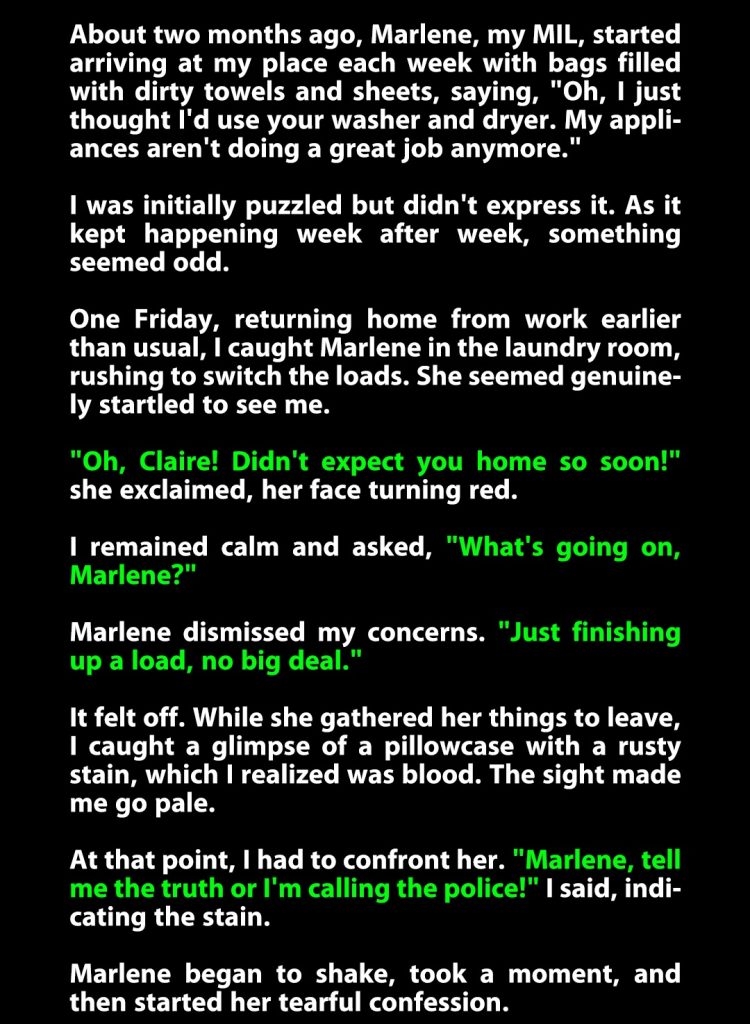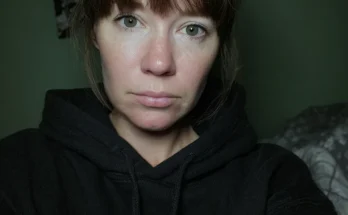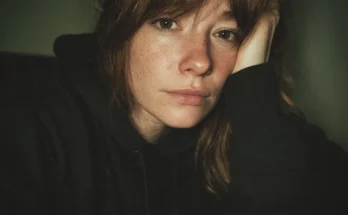I’m Claire, 29, married to Evan for four years. Our life was mostly peaceful—until his mother, Marlene, began showing up weekly with bags of towels and sheets to wash at our house. At first, I chalked it up to her usual controlling quirks. Marlene was the kind of woman who’d rearrange your spice rack uninvited and critique your carrot-chopping technique mid-dinner prep. I tolerated it for Evan’s sake. But the laundry visits? They felt different.
She claimed her new washing machine was “too complicated,” but something about her tone and urgency didn’t sit right. She’d breeze in, dump her linens, and vanish into the laundry room like she was guarding a treasure. I started to wonder: What was she really doing?
One day, I came home early and found her not washing laundry—but sobbing quietly in our guest room, clutching a pillowcase. I froze. She didn’t see me at first. When she did, she tried to compose herself, but the truth spilled out.
Marlene had been hiding bruises. Her husband, Patrick—Evan’s father—was emotionally and physically abusive. The towels and sheets she brought weren’t just dirty—they were stained with the aftermath of her silent suffering. Our house had become her refuge, the only place she felt safe enough to clean away the evidence.
I was speechless. All those years of biting my tongue, thinking she was just meddling—she was surviving. She didn’t want to burden Evan or disrupt our marriage, so she masked her pain with criticism and casseroles.
That day changed everything. Evan and I helped her leave Patrick. We found her a safe apartment, and she finally began therapy. Her laundry visits stopped—but our relationship began anew, built not on tension, but trust.
Sometimes, the people who seem the most difficult are the ones carrying the heaviest secrets. Marlene wasn’t invading my space—she was asking for help the only way she knew how.



